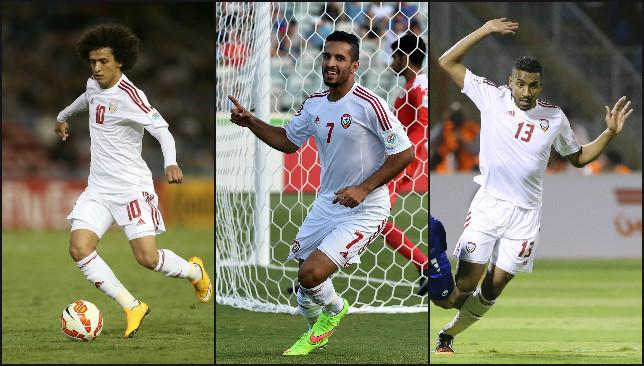
After a big international tournament, it can take a little time to get back into the groove of club football. Take the 2015 Asian Cup. The UAE were the darlings of the competition with attractive play, skilful stars and exciting games, plus the fact the team reached the last four against the odds. The continental competition comes around just once every four years, adding to the special feeling, players are quizzed by journalists from all over the world and appear on the biggest television networks.
– #Quiz360: WIN dinner for 2 at Jumeira Rotana, Dubai
Returning home for the bread-and-butter fare of club football in a league like the UAE, a good standard in Asian terms though one that receives little coverage outside the country's borders,can seem a little like an anti-climax. It is like going back to the office on Monday morning for admin work after the successful completion of an engaging and creative project.
But this is the bread and butter. The domestic league is where future national team players are forged. The Asian Champions League is where they are improved and tested. The group stage is about to kick off.

For the UAE, the Asian Champions League is a much bigger deal and much more important than the Asian Cup. It is a vital part of the development of players, coaches, clubs and leagues.
It is unfortunate that just two teams – Al Ahli and Al Ain – are in the group stage of the continental competition. This may make it more varied and interesting for the neutral (and let's be honest, seeing four teams from the big countries does get a little repetitive) but it would obviously be better for the UAE to have the full quota in the group stages.
Partly it is simple maths. In a tournament such as the Asian Cup, only around 15 or 16 players get meaningful time on the pitch. There were five competitive games – the third/fourth play-off doesn't really count. And this comes around every four years. If you have even a relatively minor injury, you could miss it all. Temporarily struggling for form could also cost you. And if your national team fails to qualify then you are really struggling.
With four teams in the Asian Champions League, you're guaranteed at least 24 games a year, with around 50 domestic players sure to get decent minutes on the pitch. There are home games where there is serious pressure to win and then the tough tests away from home to sometimes far-flung places. All the while you are playing against different styles and different kinds of opposition. Not only that, you have to balance all this with the domestic season too.
The Asian Champions League rewards those that take it seriously and do their homework. In the tournament there are still too many teams that don't scout or prepare as much as they should. This is improving as clubs and leagues develop, networks are created and opponents become more familiar.
It also rewards teams that fill their foreign spots well. Look at many of the past winners and few are those without a good mix of local and overseas talent. This is why it is unfortunate and ultimately self-defeating to split the two halves of the draw until the final. West Asian federations, unhappy at the continuing domination of the east, wished it so yet it deprives their best clubs of much-needed meetings with Chinese, Japanese and Korean powerhouses. It was a short-sighted decision. Playing the strong as often as possible helps you become strong.

And that is what UAE wants. At the moment, this is the best regular test that the likes of Omar Abdulrahman can get. When you are a country that does not send players overseas to play then this is as good as it gets.
With Al Jazira, Ali Mabkhout is going to miss the best chance he will have unless UAE actually make it to the World Cup in 2018 to cement his growing reputation. Asia misses out but the 2015 Asian Cup Golden Boot winner misses out more. The same can be said of one of the national team's less-heralded heroes, Khamis Esmail and Al Wahda's Hamdan Al-Kamali. Go far in the continental tournament and you will not only improve but the rest of Asia will be watching.
The Asian Champions League does not have the profile of the Asian Cup but then it is an annual and not a quadrennial event. It may be a little more mundane but this bread-and-butter dish can really nourish UAE football.